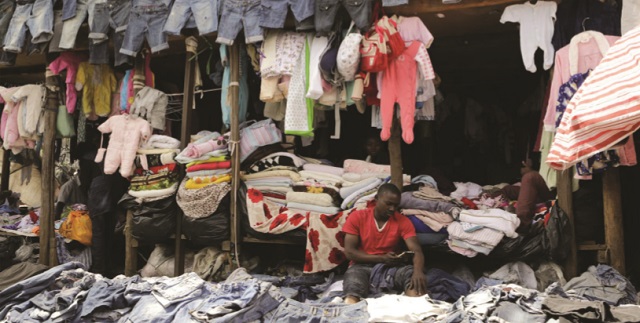(3 minutes read)
Uganda is becoming a huge market for second-hand clothes discarded by Europeans and Americans. They are shipped to African countries by middlemen, which has emerged as a multimillion-dollar business
Uganda is becoming a huge market for second-hand clothes discarded by Europeans and Americans. They are shipped to African countries by middlemen, which has emerged as a multimillion-dollar business. A sizeable number of Africans, particularly in the seven countries in East Africa would have purchased at least a portion of their clothes from the second-hand clothing market, studies reveal.
Ugandan President Yoweri Museveni said in August that he was banning imports of used clothing, saying the items are coming from dead people of Western countries and ridiculed the practice of sending second-hand clothes to Africa. He even went to the extent of referring to the clothes landing in Africa after a white person died. But trade authorities have not yet enforced the president’s order, since no executive order followed so far after the announcement of the ban.
Other African governments also are trying to stop the shipments. Many feel that business amounts to dumping and undermines the growth of local textile industries. The East African Community trade bloc — consisting of Burundi, Congo, Kenya, Rwanda, South Sudan, Tanzania, and Uganda — has recommended banning imports of used apparel since 2016. But they have not implemented the scheme ostensibly due to pressure from Washington.
There are many traders in Uganda hoping for non-implementation of the ban since such a measure would spell disaster for their roaring business. They sell second-hand clothes across the country in the open-air markets. Some of the modern malls also sell second-hand clothes often in the guise of new clothes. Since the clothes are cheap and trendy, they have a large clientele. There are instances when a pair of denim jeans is sold for 20 cents and a cashmere scarf for even less.
Read Also:
https://trendsnafrica.com/reflections-on-the-regional-economic-outlook-for-sub-saharan-africa/
https://trendsnafrica.com/stringent-gay-law-in-uganda-blocks-textiles-exports-to-the-us/
The association of traders in Kampala, known by the acronym KACITA, opposes a firm ban on used apparel, recommending a phased embargo that allows local clothing producers to build capacity to meet demand.





